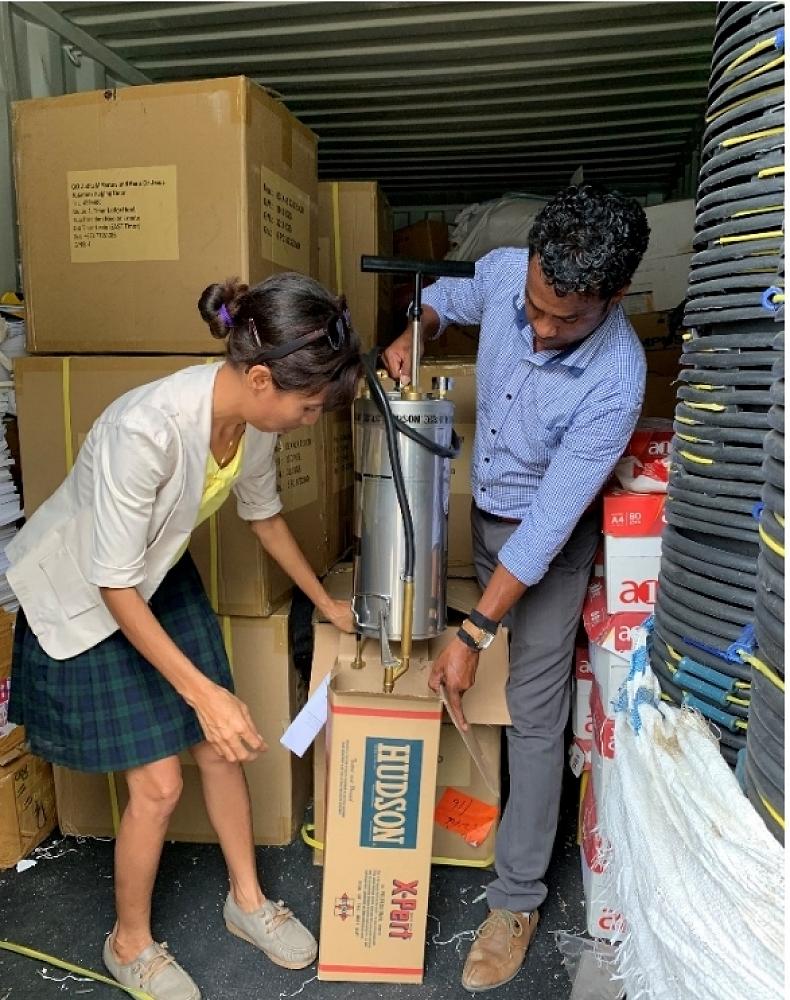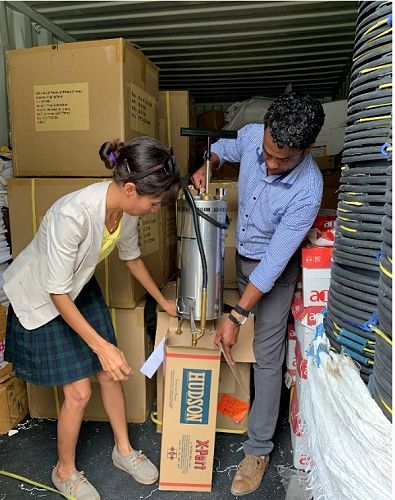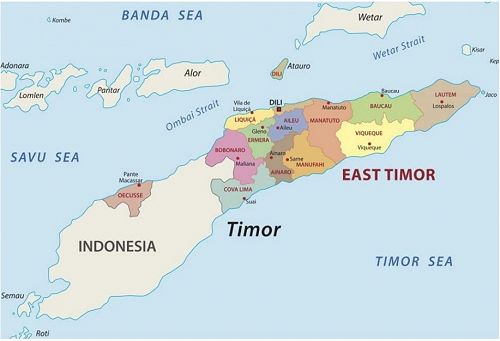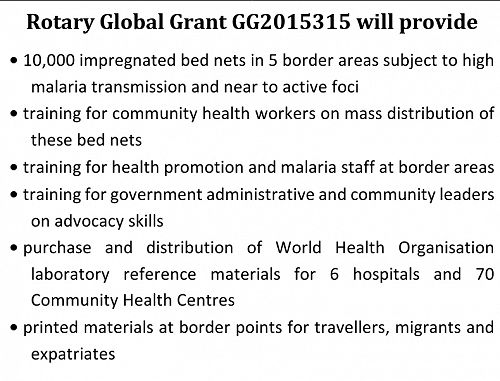
Timor Leste is mostly free of Malaria
— can we keep it that way? Rotarians Against Malaria and our Global Grant in Action.
With 15 years of hard work and commitment, the majority of Timor Leste
is currently free of indigenous malaria – but how can we ensure that it remains
free of this debilitating and life-threatening disease and protect it’s
approximately 1.2 M population?
Since 2006, Rotarians Against Malaria (RAM) Australia, an activity of Rotary Australia World Community Service (RAWCS) Ltd., has been working closely with Rotarians in Rotary District 9550 (now 9560) and across Australia, and the National Malaria Program (NMP) to support their malaria elimination strategy. RAM aims to support malaria elimination for the whole island of Timor consisting of the 12 contiguous municipalities that make up the bulk of Timor Leste (free of malaria); Indonesian West Timor; and the isolated Timor Leste municipality of Oecusse, enclosed by West Timor. In 2020, Oecusse has four recent cases of local transmission, probably of cross-border origin. If Timor Leste was malaria-free continuously for three years, it would have received malaria-free certification by World Health Organisation, in 2021.
The two arms of Rotarians Against Malaria’s strategy on Timor Island are:
1. Timor Leste: continuing to support the National Malaria Program (NMP) to ensure malaria stays away from those 12 municipalities, and eliminating it from Oecusse. Some of the key programs supported by RAM and implemented by the NMP and World Health Organisation in Timor Leste, using the multi-faceted approach that has been so remarkably successful were: vigilance, early diagnosis, treatment, training and education, bed nets impregnated with long-lasting insecticide, indoor residual spraying, and materials on malaria diagnosis and treatment for health facilities.
2. West Timor [Indonesia]: malaria elimination in West Timor will benefit the West Timorese and their neighbours in Timor Leste. Unless malaria is also eliminated from West Timor, there is an ever-present risk of reintroduction of malaria to Timor Leste.
Timor Leste’s new Rotary Global Grant GG2015315 will fund some of the ongoing work in Timor Leste. The principle aim is to prevent malaria reestablishing in Timor Leste, concentrating on five areas in three border municipalities where malaria reintroduction is a threat, Atauro Island (Dili), Bobonaro and Cova-Lima.
The Rotary clubs of Dili (Timor Leste), and Darwin are the grant partners, and the key organisation for implementation is the Timor Leste National Malaria Program. Rotarians Against Malaria will mentor the Rotary clubs of Darwin and Dil in project implementation. The US$107,000 GG project builds on a previous Rotary Global Grant-funded project of US$251,344 (2018–2021) that was initiated by RAM and managed by the RC North Hobart and RC Dili Lafaek.
Funding Acknowledgements: GG2015315 was made possible with 43% funding from RAM, and the rest from District Designated Funds (DDF) donations from D9550, D9570, D9650, D9800, and matched funds from the Rotary Foundation.
Author: David Fayle
david.fayle@bioaccent.com.au & Jenny Kerrison, National RAM Manager. national.ram@rawcs.org.au
For more information, contact:
AG Ray Fauntleroy ag1@rotary9560.org
Gallery




Location
Timor-Leste